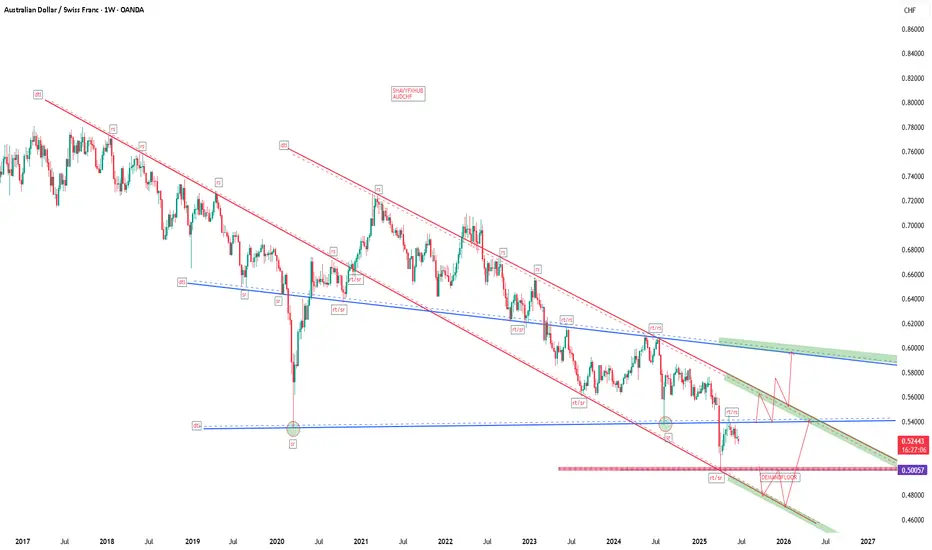China’s offshore gold vault strengthens its role in global gold pricing, potentially supporting AUD through higher gold demand. However, CHF’s safe-haven status and Switzerland’s stable fiscal policies could counterbalance this, especially if global risk aversion rises.
China's offshore gold vault in Hong Kong and its push for yuan-based gold pricing could indirectly impact AUD/CHF. As Australia is a major gold exporter, rising gold prices (influenced by China's de-dollarization efforts) may support the AUD. However, the CHF remains a safe-haven currency, gaining strength during global uncertainty, which could pressure AUD/CHF downward.
The current RBA (Reserve Bank of Australia) cash rate is 3.85%, and the SNB (Swiss National Bank) policy interest rate is 0.00%. The SNB recently lowered its key interest rate by 25 basis points to 0% on June 19, 2025. The RBA last adjusted its cash rate in May, lowering it by 25 basis points to its current level.
Impact on AUD: The RBA’s steady rate policy supports AUD stability but limits aggressive appreciation unless inflation spikes or commodity exports (e.g., gold, driven by China’s vault) boost economic outlook.
Outlook: The RBA may hold rates steady through 2025 unless China’s demand for Australian commodities (e.g., iron ore, gold) significantly increases, potentially strengthening AUD.
Swiss National Bank (SNB) 0% rate
Impact on CHF: The low rate reinforces CHF’s safe-haven appeal, especially amid global uncertainties (e.g., US trade policies, geopolitical tensions). This strengthens CHF, capping AUD/CHF upside.
Outlook: The SNB is likely to maintain low rates, with potential cuts if deflationary pressures emerge, further supporting CHF strength.
China's offshore gold vault in Hong Kong and its push for yuan-based gold pricing could indirectly impact AUD/CHF. As Australia is a major gold exporter, rising gold prices (influenced by China's de-dollarization efforts) may support the AUD. However, the CHF remains a safe-haven currency, gaining strength during global uncertainty, which could pressure AUD/CHF downward.
The current RBA (Reserve Bank of Australia) cash rate is 3.85%, and the SNB (Swiss National Bank) policy interest rate is 0.00%. The SNB recently lowered its key interest rate by 25 basis points to 0% on June 19, 2025. The RBA last adjusted its cash rate in May, lowering it by 25 basis points to its current level.
Impact on AUD: The RBA’s steady rate policy supports AUD stability but limits aggressive appreciation unless inflation spikes or commodity exports (e.g., gold, driven by China’s vault) boost economic outlook.
Outlook: The RBA may hold rates steady through 2025 unless China’s demand for Australian commodities (e.g., iron ore, gold) significantly increases, potentially strengthening AUD.
Swiss National Bank (SNB) 0% rate
Impact on CHF: The low rate reinforces CHF’s safe-haven appeal, especially amid global uncertainties (e.g., US trade policies, geopolitical tensions). This strengthens CHF, capping AUD/CHF upside.
Outlook: The SNB is likely to maintain low rates, with potential cuts if deflationary pressures emerge, further supporting CHF strength.
Disclaimer
The information and publications are not meant to be, and do not constitute, financial, investment, trading, or other types of advice or recommendations supplied or endorsed by TradingView. Read more in the Terms of Use.
Disclaimer
The information and publications are not meant to be, and do not constitute, financial, investment, trading, or other types of advice or recommendations supplied or endorsed by TradingView. Read more in the Terms of Use.
